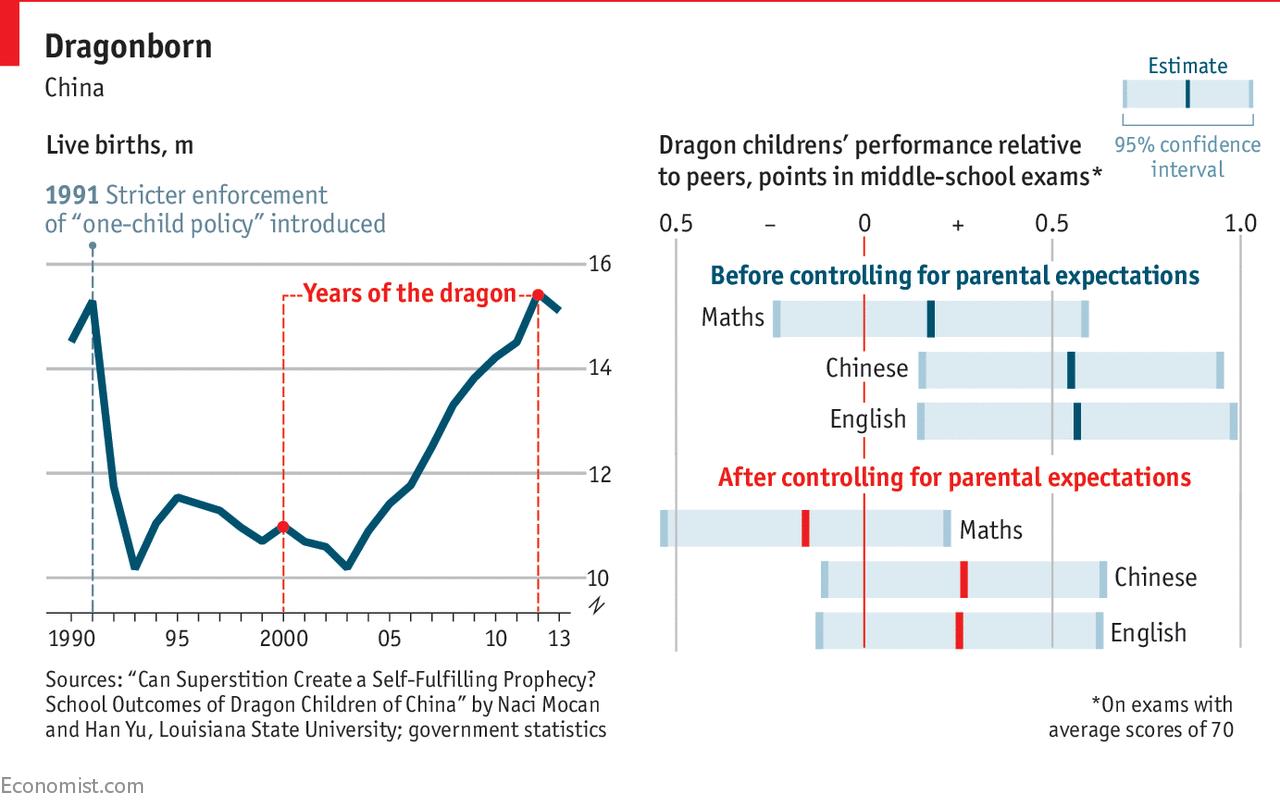Daily chart
A recent study suggests a self-fulfilling prophecy could be at work

Sep 4th 2017 | by THE DATA TEAM
DRAGONS have long been revered in Chinese culture. As a result, children born in the dragon years (or “dragon children”) of the zodiac calendar are thought to be destined for success in later life. A recent working paper by Naci Mocan and Han Yu, two economists at Louisiana State University, probes this superstition.
The authors note that Chinese parents certainly seem to prefer raising dragon children than, say, sheep children. The number of babies born in China spiked in 2000 and 2012, the two most recent years of the dragon. Birth rates in Taiwan, Hong Kong, Singapore and Malaysia follow a similar pattern. China’s “one-child policy” has made it difficult for parents to time the births of their children to correspond with years of the dragon, which has suppressed the effect of the zodiac calendar on births.

Children fortunate enough to be born in dragon years seem to flourish at school. The authors looked at the test scores of some 15,000 Chinese secondary-school pupils, and found that relative to their peers, dragon children received better grades on both their Chinese and their English exams. Moreover, analysis of a different data set showed that they are 11 percentage points more likely to go to university than others. These findings hold true when accounting for family background, cognitive ability and self-esteem. What is different about dragon children, the authors argue, is how much their parents believe in them.
Parents of dragon children tend to spend both more money and more time educating their offspring. They are more likely to speak to teachers, enroll their children in kindergarten and dish out more pocket money. Similarly, dragon children get given fewer chores around the house. When these factors are controlled for, the academic edge of dragon children disappears. Success, the authors argue, is a self-fulfilling prophecy.